A conservation biologist, an ecological scientist, and an environmental engineer have taken the helm as deans of Michigan Technological University's College of Forest Resources and Environmental Science, College of Sciences and Arts and College of Engineering.
All three new deans at Michigan Tech bring a depth and breadth of experience gained through leadership roles and as internationally known researchers who have addressed some of the most pressing contemporary issues affecting the planet.
David Flaspohler leads the College of Forest Resources and Environmental Science (CFRES). His work in conservation biology focuses on the influence of human activities on natural ecosystems. Flaspohler's studies range from the effects of forest fragmentation on songbird populations to the cascading effects of deer overbrowsing and the influence of riparian forest management on birds, fish and aquatic invertebrate communities. Flaspohler has spent his entire career at Michigan Tech, most recently serving as interim dean of CFRES for 21 months.
LaReesa Wolfenbarger is the dean of the College of Sciences and Arts (CSA). An expert on shorebirds of conservation concern and the ecological impacts of genetically engineering organisms, she comes to Michigan Tech from the University of Nebraska Omaha, where she was associate dean of natural sciences and research in the College of Arts and Sciences. Prior to that appointment, she chaired the biology department. Wolfenbarger previously worked at the Environmental Protection Agency, which inspired her to shift her research trajectory to emphasize scientific collaborations and partnerships with policy and decision makers.
Dean of the College of Engineering (COE), Michelle Scherer's environmental engineering specialty is soil and water chemistry. She comes to Michigan Tech after a 26-year career at the University of Iowa, where she was a distinguished chair and professor in the Department of Civil and Environmental Engineering (CEE). She served as CEE department chair for almost eight years, founded and co-chaired the College of Engineering's Diversity, Equity, and Inclusion Council and served as the director of the CoE Hanson Center for Communication.
Higher education should not be on the table. We should be redesigning the table.
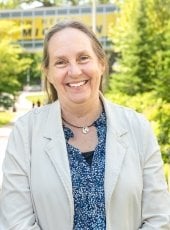
Although Wolfenbarger and Scherer began exchanging texts after their appointments, the deans weren't well-acquainted with each other before they stepped into their new roles on campus. That's changed. As Scherer puts it, "I didn't know LaReesa or David before coming to MTU, but the first month of being a dean is a bit like boot camp, so I definitely know them now and am thrilled to have the chance to work with them!"
Q&A with David Flaspohler, LaReesa Wolfenbarger and Michelle Scherer
In their own words, the deans share the passion, purpose and priorities that led them to their new roles at Michigan Tech:
Q: LaReesa and Michelle, you recently arrived on campus. What's your initial impression?
LW: I love the open nature of the campus. The Keweenaw is breathtaking and I'm enjoying all of the outdoor activities here.
MS: MTU is a special place. My initial impression is that faculty and staff care enormously about the students as people. They are all in on training them to rigorously solve real problems while providing a community and sense of belonging that encourages them to explore, grow and thrive.
Q: David, you've been at Tech since 1998. What was your first impression of campus — and how has that changed?
DF: Well, I was a very green assistant professor who defended my Ph.D. and started my faculty position in the same month. At that time, we were the School of Forestry and Wood Products. In response to the changing nature of natural resource science, our name was changed and we've added new bachelor's degree programs in disciplines such as wildlife ecology and conservation and environmental data science. I would say our College has expanded our offerings in response to technological advances and the evolving nature of what the public expects from the forests, wetlands and waters that support all life.
Q: Why did you come to Michigan Tech? What most excites you about this new opportunity?
DF: For a long time I felt that being a tenured full professor was the best job in the world, and I did and still do love teaching and research. One of the best things about Michigan Tech is how open people are to team building and collaboration. As dean, I have discovered how important these same relationship-based activities are to the success of an academic unit. Faculty members are kind of like entrepreneurs at one scale as they work hard to grow their research program. As dean, I am able to lead the unit in a broader way. Having the opportunity to support faculty, students and staff in their roles as they work toward their professional goals is tremendously rewarding. Also as dean, you are able to more clearly see the positive impacts the College has on students, alumni and the wider community.
LW: I came to Michigan Tech because of the opportunity to work at a STEM-focused university with a holistic approach to educating its students. There is a tension between technical training and the breadth of skills needed to adapt throughout one's career. The curriculum at Michigan Tech demonstrates a recognition of the need for both and a balance between those two. I am impressed with the Essential Education curriculum changes and am looking forward to supporting its implementation in fall 2025.
MS: I came to Tech because of the people. There is an attitude here that yes, there are some wickedly complex transitions happening (e.g., climate change, energy transition, technology leaps) but we are going to roll up our sleeves and get to work. I love that attitude.
Q: What are the key opportunities and priorities you've identified for your College in the context of the University's initiatives?
DF: The previous two deans in our college did a lot to build alignment with the Michigan Tech Forward priorities. Obviously, we have a large footprint in sustainable use and stewardship of the natural world. What might surprise some, however, are our research and degree programs in the digital space, such as a master's in geographic information science, and work in the designed and built environment (bachelor's in sustainable bioproducts and mass timber research). Environmental science and sustainability, one of our newest and fastest-growing bachelor's degrees, trains students to work in the space between human-social-economic systems and the natural resources and biodiversity that supports all life.
We're growing very rapidly because we offer programs that are of interest to young people and are meeting the needs of 21st century environmental challenges. We are in a really good place, but we can do even more.
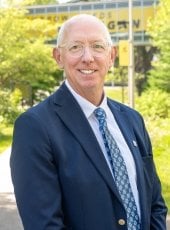
LW: I'll be working with the College to establish priorities over the next two months. The College trajectory in research and teaching is impressive and in the short term we will prioritize pathways for growth in research, while also taking on implementation of Essential Education programming. For the long term, I've been joking that I was brought on to grow [insert noun of your choice]!
MS: There is a lot going on at MTUengineering. We have serious expertise in all things power (generation, storage, distribution), mobility (road, rail, water, air), manufacturing,and sustainable management of our natural resources (metals, water, soil). On top of this, we have fantastic new facilities that are opening the door to exciting opportunities in human health engineering.
"I really do think tomorrow needs Michigan Tech. I am all in on Michigan Tech's vision of leaving no one behind. We have the technological chops and the willpower to address change. We're walking the talk."
Q: LaReesa and Michelle, you're first-generation college graduates. How does that inform your leadership and teaching roles? How can we help these students who are the first in their families to attend college overcome barriers to education and achieve upward mobility?
LW: Being a first-generation college graduate infuses humility and empathy into my leadership, mentorship and teaching. For me, peer support was critical to my success. I applied to go to college because my high school friends were — what a positive example of peer pressure! Once I started college, I stumbled and didn't ask for help. I ended up with an amazing roommate and I walked onto the rowing team. I formed strong relationships with these women and found a support and advice network.
MS: It permeates everything I do as a teacher, researcher and leader. My parents knew nothing about the college experience, let alone the world of academics. My dad was an electrician and my mom a lab tech. Within my first few weeks of college, I had a very strong sense that this was not like home and I did not belong. I got through the next four years, but it was not a smooth journey, and luck played a big part in it. Luck should not be part of the calculus of why a student is successful and thriving. The path, rules, guidelines, processes — all of that that has to be navigated in college should be clear, accessible and explicit. For families and students new to the college world, I think the number one thing we can do is clearly communicate how things work early, often and in every mode we can — in person, in writing, on social media, over Zoom, on the phone. Make the unspoken rules and norms explicit and then share here, there and everywhere. That's how I think we help first-gen students the most and that's how I think we lead best.
Q: David, you speak glowingly of your undergraduate and graduate students — and share their accomplishments on your Instagram account. What do you admire most about them and what are your hopes for them when they leave Michigan Tech?
DF: As dean, I do miss the regular classroom contact with students. On the other hand, I can be more engaged with them during Orientation, exit interviews and just casual conversations in our beautiful building or at the Ford Center, our remote campus 30 minutes south of Houghton. Again and again in these conversations, I hear from students that their time here has transformed them in so many positive ways. They consistently share stories of growth in terms of skills as well as professionalism and overall confidence.
"Last year, when I asked a student how she would describe CFRES students, she paused thoughtfully, then said: 'Adventurous … and kind of nerdy.' Personally, I can't think of a better descriptor or compliment."
Q: Michelle, you've mentioned how your approach to working with graduate students has shifted over time, transcending the conventional and time-honored mindset of creating a "mini me." Can you tell us more about that?
MS: Don't get me wrong — I think there are students who want to be professors, with all that that involves (teaching, research, publishing, etc.). But, not all students want to go that route, and I think we as faculty have a responsibility to train students to thrive in whatever arena they choose to leap into and make a difference. So, my idea of graduate education has evolved, and I think in a good way. I absolutely will train them at a rigorous level to have depth in our field, but I also want them to have experiences that give them breadth and skills to communicate and engage with others. And, I want them to have some say in what kind of experiences those might be.
"I love working with graduate students. The graduate students of 20 years ago are not the graduate students of today. They are not necessarily interested in academic jobs. Some want to follow different career paths and I think we need to provide them opportunities to do that."
Q: LaReesa, you've mentioned how much you appreciate Tech having a CSA rather than CAS. Usually the "arts" comes before the "sciences." What does the CSA name tell us about the College's unique nature?
LW: When I first read the prospectus for the dean's position, the name really made a strong statement to me of how focused the University was on STEM. There is an intentionality to the name that resonates with me. To me, the name communicates focus on STEM with sciences and arts together.
"Solutions to our society's wicked problems will require interdisciplinary teams where the social sciences, humanities and arts are partners with the STEM disciplines."
Q: Michelle, research communication in engineering is a priority for you. Can you tell us about your previous efforts in this area and how they translate to the College of Engineering at Michigan Tech?
MS: Well, since you asked (smiles). Yes, I am indeed a huge fan of teaching engineering students to communicate effectively. I think being able to take your data, narrate a compelling story about it, and then deliver it with presence is a super power. Data means nothing if you are unable to use it to persuade people to do something because of it. I tell (and teach) students that getting, analyzing and interpreting the data is only half the battle. The rest, and for many engineers, the harder part, is convincing someone to use the data or do something differently because of it. I felt strongly enough about this that I started teaching it at UIowa about 10 years ago, then later directed a collegewide center focused on teaching communication skills. At MTU, there is already excellent training in communication (there is a degree in scientific communication!), and I can't wait to partner with everyone here to amplify and elevate communication as a key skill for our students to master.
Q: Michigan Tech's legacy — and future — are based in successfully applying technology to answer real-world questions in the natural, built and human-social world. What does that practice look like in your College?
DF: From our drone operators class to a fully online Master of GIS, CFRES is always working to incorporate the latest technology into the training of the next generation of natural resource professionals.
LW: As I did research on MTU during my decision-making process to apply for the dean of CSA, when I saw the Tech Forward graphic that places human dimensions at the center of our research efforts, that made the decision for me. Humans are at the core of any way forward, and we have to include the disciplines with expertise in this dimension to guide us to meaningful solutions.
MS: Students need to design, build, communicate and present. They have to do stuff and then tell people about it in a way that will make them care. MTU's Enterprise Program is an amazing example of this in action. It is a huge success, and there are not a lot of places doing this.
Q: Besides campus, where's your happy place in the Keweenaw?
DF: My wife and I have a camp on Hermits' Cove that is really heavenly for a few months in the summer.
LW: Anywhere on the shore of Lake Superior!
MS: My happy place is in Freda with my dogs (Lilly and Sugar) and husband. We love it up here — the lake, the 1.1-billion-year-old rocks, the night skies — all of it (well, maybe not the mosquitoes!). We also love the history of the old Champion Mill there and the truly "end of the road" feel and community.
Q: Michelle, we have to ask — why a Tesla, and did you bring it? That would be an unusual sight in Freda.
MS: Yep, we brought the Tesla! We are pretty into electric-powered stuff (cars, lawn mowers …). We wanted something that we could do long trips with, and at the time, back in 2018, Tesla was really the only option because of their charging network. When we started coming up here in it from Iowa, it was a little dicey. We once stopped in a campground and paid for an overnight spot to charge for a few hours! Now with so many more charging options, I think most EVs can do long trips.
Q: David, both you and LaReesa conduct bird-related research — and are birders. Do you have a favorite bird? A favorite birding story?
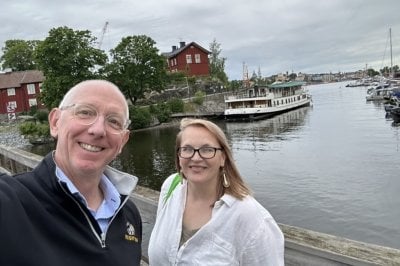
DF: About two weeks ago, LaReesa mentioned to me that she and her husband drove to the Baraga Plains to look for the formerly endangered Kirtland's warbler and found a singing male. This was a life bird (first sighting of a new species) for both of them and I was excited to hear this story. Our College is actually working with the U.S. Forest Service, the Michigan Department of Natural Resources and other groups to manage the Baraga Plains landscape to support more breeding Kirtland's warblers, which are a real success story of the Endangered Species Act.
LW: My favorite bird is the one I saw last. What I love most about birding is the diversity. My favorite birding memories are centered in experiencing migration. I've been doing research on a species that winters in southern Argentina and breeds on the high Arctic. It's migrating most of the time. Seeing thousands of a single species gathered in a small area is magnificent. I am in awe when I look up at a sky with tens of thousands of migrating birds or see a pond where there is no open water because all the space is taken up by waterfowl.
Q: What do you like to do in your free time?
DF: I do a lot of road biking on the Keweenaw, carpentry, cooking and gardening.
LW: I like hiking and biking. Since the pandemic I've started swimming — at a lap pool and open water swimming when I have the chance. I started doing very short triathlons last year and love that. I read. I look forward to winter sports!
MS: Walk my dogs in Freda — or ski (sadly, not last winter!) — and kayak on Lake Superior. I also love to listen to podcasts and audiobooks (sigh, I love to read, but it just doesn't happen as much these days).
Q: All of Michigan Tech's deans have identified cross-campus collaboration and increased interdisciplinary research as crucial to the University's future. Can you give us a couple of specific examples of projects you'd like to create or expand?
DF: As a professor, I benefited from interdisciplinary research involving materials science, chemical engineering, social science and electrical engineering. Some may see challenges in finding ways to blend disciplines to address novel challenges, but I have always been drawn to those challenges and stimulated by the learning and discovery that comes from such collaborations. In terms of academics, I am currently working with the College of Engineering on a new B.S. in Ecological Engineering. CFRES is also home to the only artist-in-residence program in any natural resource college in the country. We just picked up a used piano for our atrium. Such additions to our building enrich the experience of our entire CFRES community. Collaboration between colleges is essential to continue University growth.
LW: We live in a complex world and we have complex challenges to solve. These will take teams of scientists who are able to communicate across disciplines and collaborate on research that integrates multiple perspectives and disciplines.
STEM applications may produce the perfect solution, but if humans won't use it, we have another challenge to solve. We have to think from the outset about how humans will interact with technology and incorporate those perspectives at the start.
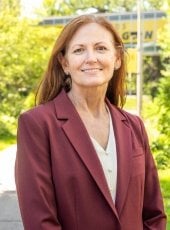
MS: Finding real solutions to real problems is more than a technological challenge. It is a people, culture and environment challenge as well. And, as engineers, this is not really our expertise. The complex transitions we are facing today need everyone at the table.
Michigan Technological University is an R1 public research university founded in 1885 in Houghton, and is home to nearly 7,500 students from more than 60 countries around the world. Consistently ranked among the best universities in the country for return on investment, Michigan's flagship technological university offers more than 185 undergraduate and graduate degree programs in science and technology, engineering, computing, forestry, business, health professions, humanities, mathematics, social sciences, and the arts. The rural campus is situated just miles from Lake Superior in Michigan's Upper Peninsula, offering year-round opportunities for outdoor adventure.

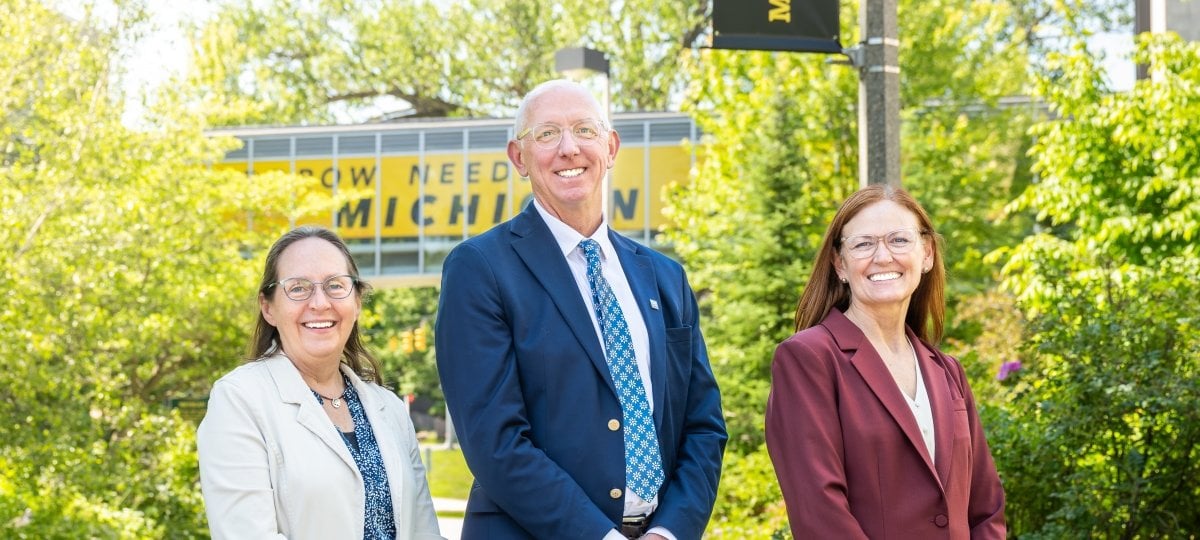
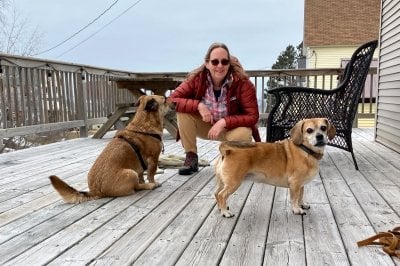
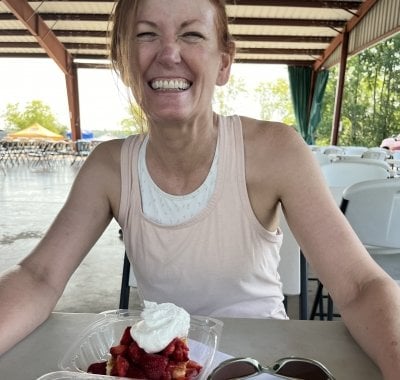




Comments